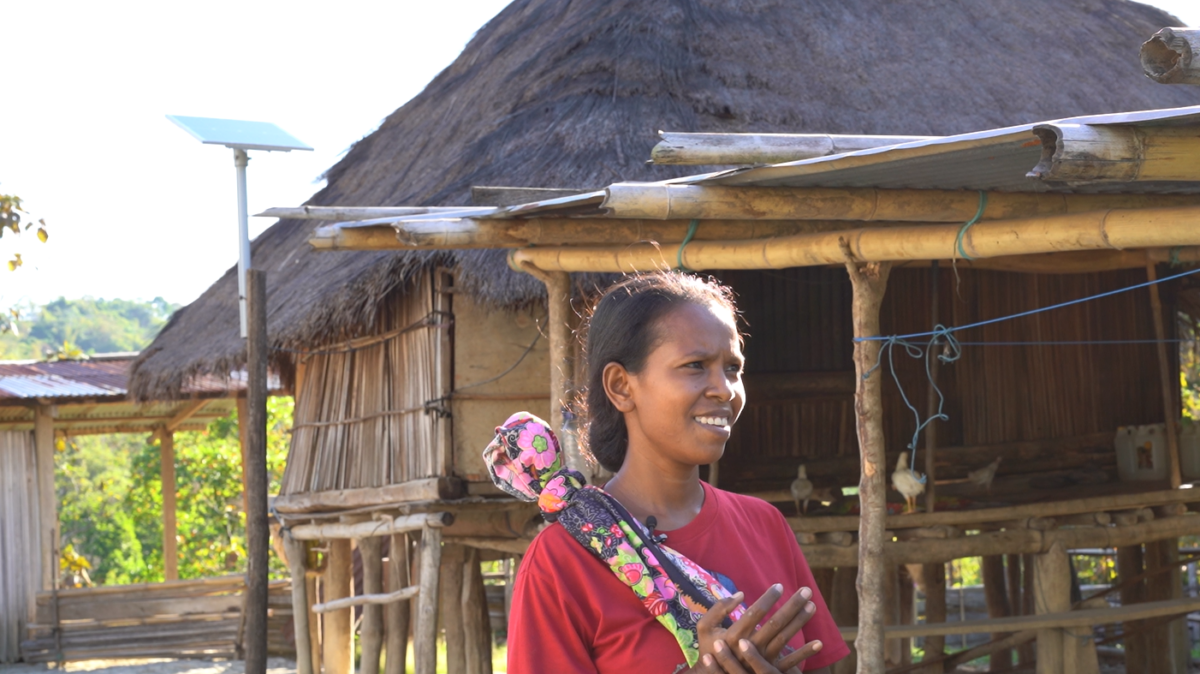Through the Pacific Green Transformation Project (PGTP), the Japanese government has partnered with the United Nations Development Program (UNDP) to install solar panels and solar lights in Timor-Leste villages, which are not connected to an electricity grid.
The project specifically aims to switch Timor-Leste, Papua New Guinea, Samoa, and Vanuatu to renewable energy and reduce dependence on fossil fuel.
Completed in Timor-Leste in December 2024, the installation of solar and solar lights in villages without running water or access to electricity has been funded by the Japanese government and seen 1,000 solar kits distributed to rural households.
In the southern Timor-Leste village of Suco Tutuluro, about 100 kilometres south of the capital Dili, but a 3-hour, the installations have transformed the community’s night time activities, particularly for women.
Resident Geomar da Costa Amaral said nights used to be defined by darkness, limited activity and early bedtimes or evenings spent by dim flickering candlelight.
“We had to rely on small flashlights, candles or kerosene lamps for light at night. We spent a lot of money buying batteries for the flashlights. During the rainy season, it was harder because the darkness would be so overwhelming, and we didn’t have sufficient light for any outdoor tasks,” Amaral said.
Through the PGTP, Amaral’s family have received a solar panel kit and for the first time can light both the inside and outside of their home with clean reliable light providing a newfound sense of security and freedom for herself and four children.
The UNDP says sustainably sourced electricity empowers women of all ages while contributing positively to the development of their country.
Outside of giving communities access to clean and reliable power, the program supports schools to have solar power-based information by equipping communication technology labs to promote digital teaching and learning.
This content is protected by copyright and may not be reused. If you want to cooperate with us and would like to reuse some of our content, please contact: editors@pv-magazine.com.








By submitting this form you agree to pv magazine using your data for the purposes of publishing your comment.
Your personal data will only be disclosed or otherwise transmitted to third parties for the purposes of spam filtering or if this is necessary for technical maintenance of the website. Any other transfer to third parties will not take place unless this is justified on the basis of applicable data protection regulations or if pv magazine is legally obliged to do so.
You may revoke this consent at any time with effect for the future, in which case your personal data will be deleted immediately. Otherwise, your data will be deleted if pv magazine has processed your request or the purpose of data storage is fulfilled.
Further information on data privacy can be found in our Data Protection Policy.